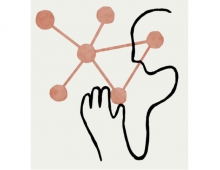
Amazon Wins EU E-book Pricing Battle with Apple, Publishers
European Union regulators ended an antitrust probe into e-book prices on Thursday, accepting an offer by Apple and four other publishers to ease pricing restrictions on Amazon and other retailers.
The European Commission accepted the commitments offered by Apple and four top international publishing groups - Hachette Livre; Harper Collins, owned by News Corp.; Simon & Schuster of the CBS Group; and Macmillan, which belongs to the German publishing group Georg von Holtzbrinck - in relation to suspected infringements on the market for ebooks in the European Economic Area (EEA.)
The commission's decision puts an end to a suspected concerted practice aimed at raising retail prices for e-books in the European Economic Area.
Apple and the four publishers seemingly shared the goal of limiting retail-price competition. To achieve this goal, they agreed in January 2010 to jointly switch the sale of e-books from a wholesale model, where the retailer is free to set the price, to an agency model where the retail price of e-books is determined by the publishers themselves.
EC's concerns focussed on this joint switch to the agency model on the same key pricing terms. In particular the agency contracts with Apple included what can be called a "most-favoured customer" clause for retail prices. According to this clause, if any retailer sold an e-book at prices lower than that on Apple's iBookstore, the publishers would have to match that lower price on Apple's store, further lowering their revenues.
This clause effectively made it very costly for publishers to allow other retailers to sell at lower prices than Apple since that low price would then have to be extended to Apple's store. This means the incentives of publishers were aligned and they could face Amazon and other retailers as a group. In consequence, the concerned publishers took the necessary steps to switch all retailers to agency agreements in order to take away their discretion in setting retail prices.
Amazon and other retailers agreed to agency models of distribution. They were told they might not be supplied with e-books if they did not agree to the switch.
As the practice was implemented first in the US and a short time later in Europe, the EC worked with the US Department of Justice on this case to seek a global solution. Three publishers settled with the DoJ in September and litigation with other companies is still on-going.
To settle the case, the four publishers and Apple offered commitments that contain the following key provisions:
- Apple and the four publishers will terminate the current agency agreements that are the result of the collusive conduct;
- For a period of two years, the publishers cannot, subject to certain conditions, hamper e-book retailers from setting their own prices for e-books or, from offering discounts and promotions;
- For a period of five years neither the four publishers nor Apple can conclude agreements for e-books with retail-price Most Favoured Customer clauses.
The European regulators also said thy have been engaged in discussions on the matter with a fifth publisher ? Pearson, owner of Penguin - in order to achieve a possible settlement that would allow the Commission to close the proceedings against them.
The decision hands Amazon a victory in its attempt to sell e-books cheaper than rivals in a fast-growing market publishers hope will boost revenue and customer numbers.
"The commitments proposed by Apple and the four publishers will restore normal competitive conditions in this new and fast-moving market, to the benefit of the buyers and readers of e-books," EU Competition Commissioner Joaquin Almunia said.
The commission's decision puts an end to a suspected concerted practice aimed at raising retail prices for e-books in the European Economic Area.
Apple and the four publishers seemingly shared the goal of limiting retail-price competition. To achieve this goal, they agreed in January 2010 to jointly switch the sale of e-books from a wholesale model, where the retailer is free to set the price, to an agency model where the retail price of e-books is determined by the publishers themselves.
EC's concerns focussed on this joint switch to the agency model on the same key pricing terms. In particular the agency contracts with Apple included what can be called a "most-favoured customer" clause for retail prices. According to this clause, if any retailer sold an e-book at prices lower than that on Apple's iBookstore, the publishers would have to match that lower price on Apple's store, further lowering their revenues.
This clause effectively made it very costly for publishers to allow other retailers to sell at lower prices than Apple since that low price would then have to be extended to Apple's store. This means the incentives of publishers were aligned and they could face Amazon and other retailers as a group. In consequence, the concerned publishers took the necessary steps to switch all retailers to agency agreements in order to take away their discretion in setting retail prices.
Amazon and other retailers agreed to agency models of distribution. They were told they might not be supplied with e-books if they did not agree to the switch.
As the practice was implemented first in the US and a short time later in Europe, the EC worked with the US Department of Justice on this case to seek a global solution. Three publishers settled with the DoJ in September and litigation with other companies is still on-going.
To settle the case, the four publishers and Apple offered commitments that contain the following key provisions:
- Apple and the four publishers will terminate the current agency agreements that are the result of the collusive conduct;
- For a period of two years, the publishers cannot, subject to certain conditions, hamper e-book retailers from setting their own prices for e-books or, from offering discounts and promotions;
- For a period of five years neither the four publishers nor Apple can conclude agreements for e-books with retail-price Most Favoured Customer clauses.
The European regulators also said thy have been engaged in discussions on the matter with a fifth publisher ? Pearson, owner of Penguin - in order to achieve a possible settlement that would allow the Commission to close the proceedings against them.
The decision hands Amazon a victory in its attempt to sell e-books cheaper than rivals in a fast-growing market publishers hope will boost revenue and customer numbers.
"The commitments proposed by Apple and the four publishers will restore normal competitive conditions in this new and fast-moving market, to the benefit of the buyers and readers of e-books," EU Competition Commissioner Joaquin Almunia said.





















